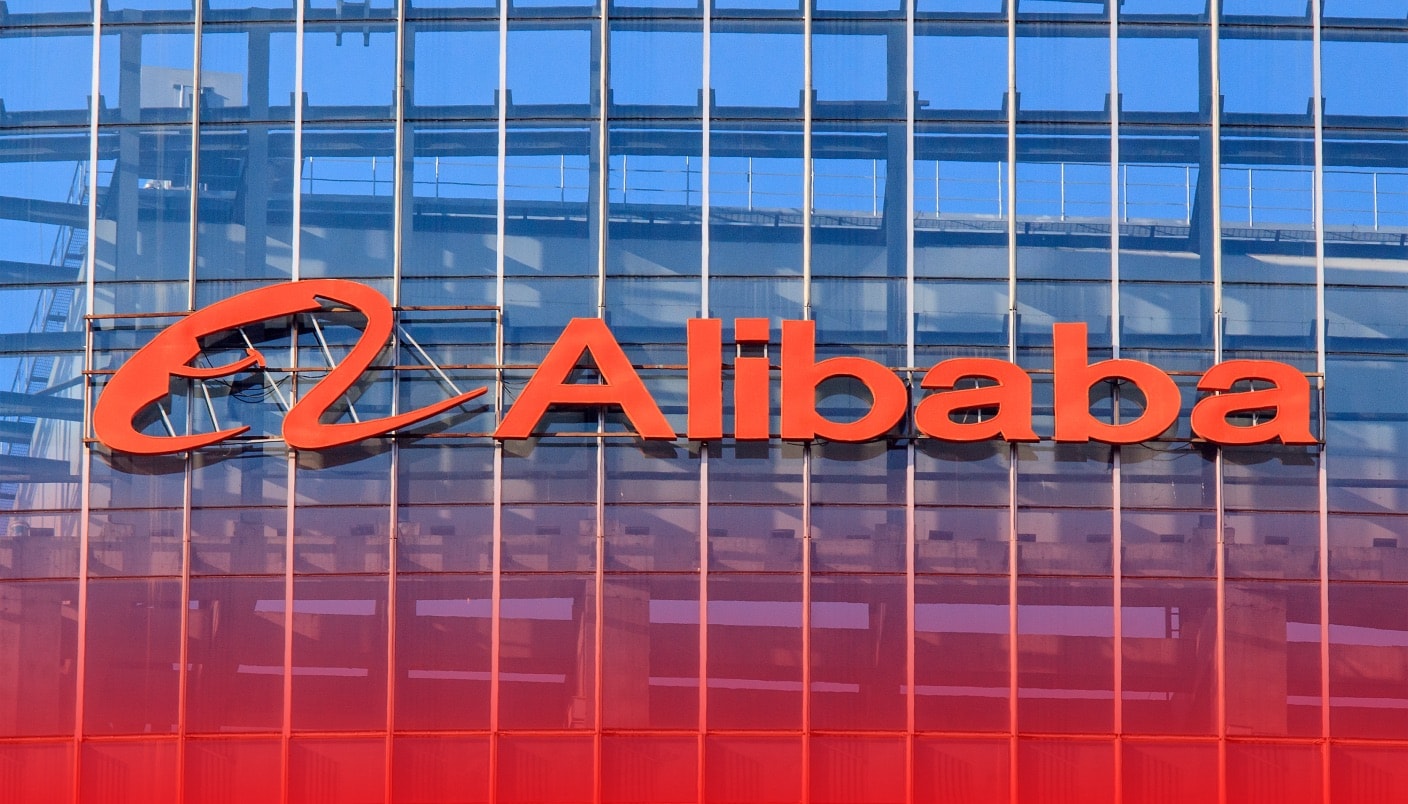Breaking News! 🚨 Top 10 brokers is here! See the most trusted trading platforms of 2024. Go now!
Alibaba’s Global Expansion: Opportunities and Risks
Examine Alibaba's global expansion efforts and investment opportunities. Assess regulatory hurdles and geopolitical risks impacting Alibaba's expansion strategy.
2 years ago, Jun 12, 10:47 am

Alibaba Group, the Chinese e-commerce giant, has firmly established itself as a dominant force in the domestic market. However, the company has set its sights on ambitious global expansion goals. As of 2024, Alibaba operates e-commerce businesses in over 200 countries and regions, with international commerce retail businesses spanning 190+ markets worldwide.
The company’s international commerce retail businesses, which include Lazada, AliExpress, Trendyol, and Daraz, generated a gross merchandise volume (GMV) of $39.7 billion in fiscal year 2023, representing a year-over-year increase of 24%. While this accounts for only a fraction of Alibaba’s total GMV of $1.39 trillion, the international segment is growing rapidly and presents significant opportunities for future growth.
This article will delve into Alibaba’s global expansion strategy, analyzing the opportunities and risks, and assessing the investment implications for investors interested in the company’s stock.
Alibaba’s Global Expansion Efforts and International Operations
To achieve its ambitious global goals, Alibaba has employed a multi-pronged approach, combining strategic investments, partnerships, and organic growth initiatives. The company’s international expansion efforts can be broadly categorized into three main areas:
Cross-Border E-Commerce Platforms
- AliExpress: Alibaba’s global retail marketplace saw over 200 million annual active consumers as of March 2023.
- Tmall Global: Allows over 29,000 international brands across 84 countries and regions to sell to Chinese consumers.
Localized E-Commerce Marketplaces
- Lazada (Southeast Asia): Serves markets across Singapore, Malaysia, Indonesia, Thailand, Vietnam and the Philippines with over 159 million annual active consumers as of March 2023.
- Trendyol (Turkey): Turkey’s leading e-commerce platform with over 32 million annual active consumers as of March 2023.
- Daraz (South Asia): Operates in Pakistan, Bangladesh, Sri Lanka, Nepal and aims to serve 300 million consumers across the region.
Strategic Partnerships and Investments
- Investments in logistics partners like YTO Express (China) to strengthen delivery capabilities.
- Partnerships with fintech players like Paytm (India) facilitating cross-border digital payments.
- Joint ventures like Lazada’s partnership with Cainiao (Alibaba’s logistics arm) in Malaysia.
In its fiscal year 2023, Alibaba’s international commerce retail businesses generated a gross merchandise volume (GMV) of over $46 billion, representing an increase of around 16% year-over-year despite economic headwinds.
While expanding rapidly, Alibaba still faces challenges including entrenched local rivals, varying regulations across countries, and cultural nuances in new markets. Adapting its technology, logistics, and offerings to local preferences will be key as Alibaba aims to replicate its domestic success internationally.
Opportunities and Challenges in the Global Market
Alibaba’s quest to expand its e-commerce empire globally presents both significant opportunities and formidable challenges. On the opportunities front, the company is well-positioned to capitalize on the rapidly growing e-commerce markets across Southeast Asia, Latin America, and Africa. These regions are experiencing robust growth driven by increasing internet penetration, rising middle-class populations, and evolving consumer behavior towards online shopping.
Additionally, the booming cross-border e-commerce trade presents a lucrative opportunity for Alibaba. Global cross-border e-commerce sales are projected to reach $2.4 trillion by 2026. Alibaba’s cross-border platforms like AliExpress and Tmall Global, combined with its expanding logistics capabilities, enable the company to facilitate and gain market share in this rapidly growing segment. Furthermore, expanding internationally provides diversification benefits, reducing Alibaba’s reliance on the Chinese market and mitigating risks from potential domestic regulatory changes, economic downturns, or market saturation.
Alibaba’s technological prowess in areas such as cloud computing, artificial intelligence, and big data analytics could also give it a competitive edge as it scales globally. These capabilities can enhance logistics, personalize customer experiences, and drive operational efficiencies, potentially providing a significant advantage over local and global rivals.
However, Alibaba’s global ambitions are not without significant challenges. In many international markets, the company faces intense competition from entrenched local players as well as global giants like Amazon. Overcoming these incumbents’ home turf advantages and established consumer loyalties poses a formidable challenge. Additionally, differing regulations across countries related to e-commerce, data privacy, taxation, and labor laws create compliance hurdles and increase operational complexities for Alibaba’s global expansion.
Geopolitical tensions and heightened scrutiny over Chinese tech companies’ data practices and security concerns could potentially hinder Alibaba’s global ambitions, especially in Western markets. Moreover, adapting to diverse cultural preferences, languages, and consumer behavior across multiple markets requires significant localization efforts and increases operational complexities for Alibaba.
Investment Implications for Alibaba Stock
Alibaba continues to be one of the most frequently searched stocks on Zacks.com. As such, understanding the key factors influencing its performance is essential for potential investors.
In the past month, Alibaba’s shares have declined by 2.8%, while the Zacks S&P 500 composite has risen by 3.2%. Meanwhile, the Zacks Internet — Commerce industry, which includes Alibaba, has seen a 1.9% gain. This raises the important question: What lies ahead for Alibaba’s stock?
Media reports and rumors about significant changes in a company’s business prospects can cause short-term stock price movements. However, long-term investment decisions should be based on fundamental factors. At Zacks, we prioritize evaluating changes in a company’s earnings projections. We believe that the fair value of a stock is determined by the present value of its future earnings stream. Thus, revisions in earnings estimates by sell-side analysts play a crucial role in driving the stock’s fair value. If these estimates increase, so does the stock’s fair value, attracting investors and pushing the stock price higher.
Alibaba is expected to report earnings of $1.67 per share for the current quarter, reflecting a year-over-year decline of 7.2%. The Zacks Consensus Estimate for this quarter’s earnings has increased by 2.5% over the last 30 days.
For the current fiscal year, the consensus earnings estimate stands at $7.18, marking a year-over-year decrease of 14.4%. This estimate has seen a modest increase of 0.3% in the past month. Looking ahead to the next fiscal year, the consensus earnings estimate is $8.65, indicating a 20.5% increase from the current year’s expected earnings. Over the past month, this estimate has risen by 1.8%.
The Zacks Rank, a proprietary stock rating tool, is a reliable indicator of a stock’s near-term price performance, leveraging the power of earnings estimate revisions. The recent changes in consensus estimates, combined with three other factors related to earnings projections, have resulted in a Zacks Rank #3 (Hold) for Alibaba.
Summary
- Alibaba operates e-commerce businesses in over 200 countries and regions, with international commerce retail generating $39.7 billion in GMV in FY 2023, a 24% year-over-year increase.
- AliExpress has over 200 million annual active consumers, and Tmall Global allows over 29,000 international brands from 84 countries to sell to Chinese consumers.
- Lazada serves 159 million annual active consumers across Southeast Asia, and Trendyol is Turkey’s leading e-commerce platform with over 32 million annual active consumers.
- Alibaba invests in logistics partners like YTO Express and forms partnerships with fintech companies to enhance cross-border digital payments.
- Cross-border e-commerce sales are projected to reach $2.4 trillion by 2026, presenting significant growth opportunities for Alibaba.
- Alibaba faces intense competition from local players and global giants like Amazon, along with compliance challenges due to varying regulations across countries.
- Geopolitical tensions and data security concerns could hinder Alibaba’s expansion in Western markets, necessitating significant localization efforts to adapt to diverse cultural preferences and consumer behaviors.
Get SCTA's daily newsletter in your inbox every weekday.
You may unsubscribe at any time.
